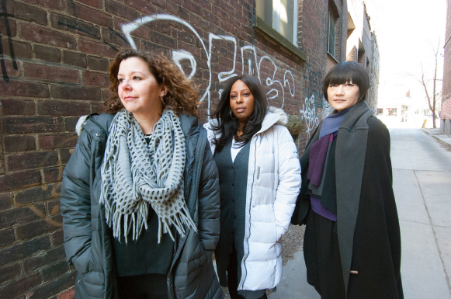
February 26, 2021
The paradox of caring: a lesson for systemic change
This year during Black History Month, I struggled with my blog and how best to communicate a message worth sharing. Not because I do not have things to say about Black History Month, but because I have too many things to say about where we are in our collective Black history this month.
When I was 19 (a very long time ago), I was fortunate enough to be employed through a summer work program for teens; the program allowed me to gain a placement at what was then the Ontario Human Rights Commission (OHRC). At that time, George Brown was the Executive Director;
George Brown, with his league of Officers, led the struggle for equal opportunity on many fronts. The agency’s Community, Race, and Ethnic Relations Unit was created in the 1970s to address the rise in racial tensions, and a unit dealing with discrimination on the grounds of physical and mental handicap was set up in 1981. George played a major role in the commission winning the first sex-discrimination case in Canada, in the early 1970s. Another success, in the late 1980s, was establishing the rights of qualified girls to play on boys’ hockey or baseball teams.[1]
I therefore began my work at the OHRC in 1984, working for two black men helming government agencies (I also supported Dan Hill in his capacity as Ombudsman), helping to undertake the country’s foundational work in race relations and equity.
My introduction to the OHRC was through the Directors, Officers, and administrative staff who took complaints and helped the public navigate discrimination, harassment, and race relations.[2] These trailblazers epitomized a diverse workplace and taught me a great deal about the importance of foundational workplace processes and policies, about empathy, compassion, patience, kindness, perseverance and advocacy – at an impressionable time in my life and at a critical time for the province. They also planted the seed for how my future was to unfold.
I provide this history to illustrate my belief that we cannot swiftly replace old and broken systems before we have created alternate re-envisioned ones to displace them – and to acknowledge that holding that paradox can be difficult. The OHRC was created to try to change workplace practices and address systemic societal and workplace issues on matters related to equity, race and discrimination, in 1961(!). And here we find ourselves again, in 2021, at a moment in between changes, a moment galvanized not by the civil rights marches of the 60s, but by a collective global witnessing of racial injustice captured on video on May 25, 2020. George Floyd’s murder woke many of us up again, and what I am hoping we all understand and consider is that this re-awakening – before any new system can be formed – requires care, patience and, importantly, collectively-considered action to enable a change of course.
In my mind, Dixon Hall is going through the same changes as our lagging external societal norms. The pandemic has given us a window into the pieces of our work that we need to improve and see more clearly. Our attention to people needs to be amplified, our behaviours need to better support our work, and our goals need to more fully support our communities over the longer term.
Currently, the people that make Dixon Hall so effective and constant are all bravely trying to manage personal responsibilities while holding fast to their work commitments, hampered in their success by old systems that need to change and better reflect our new reality. Personal well-being is more critical now than it has been at any other time, with so many vulnerable clients and service users relying on us for their livelihoods. We are all trying to care: for ourselves, and for each other during these in-between moments of our challenged society. This is our paradox.
Complexities in every aspect of the lives we are trying to hold on to during the pandemic are making simple conversations and interactions more challenging. “I’m frustrated at work today”. Is it because I am tired or angry? Is it because I am caring for an ailing family member or because society is finally waking up to how complicated life can be for anyone who has been marginalized, seen only singularly, or traumatized, instead of as the multi-faceted, multi-layered, intricate human beings that we are?
What does all of this have to do with Black History Month? If you knew the many faces that make up the workforce of Dixon Hall, you would know that it has everything to do with Black History Month; the diverse and racialized populations of our workforce represent the possibility for our collective considered right action — our future “cure”. We are a league of officers and how we choose to engage, to speak up when we see injustices, harmful actions or behaviours, and help to educate others, is as important as the when. We can shorten the timelines needed for systemic change by staying present, engaged, informed, empathetic and open; by using this time — “our paradox” — to reflect and highlight for ourselves what is important to us. How do you want to be seen? Opportunities for engagement will look different for everyone and will occur when you least expect them. Be ready to support change in a way that doesn’t always focus solely on you.
By Mercedes Watson
CEO, Dixon Hall
The Ontario Human Rights Commission (OHRC) was established as an arm’s length agency of government in 1961 to prevent discrimination and to promote and advance human rights in Ontario. The OHRC is one pillar of Ontario’s human rights system, alongside the Human Rights Tribunal of Ontario (HRTO) and the Human Rights Legal Support Centre (HRLSC).
_____________

